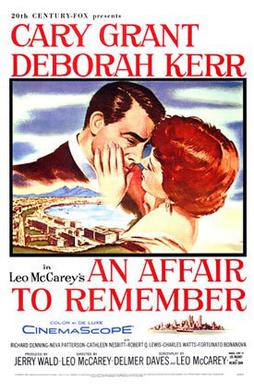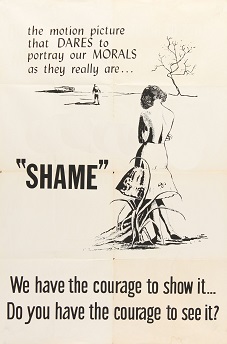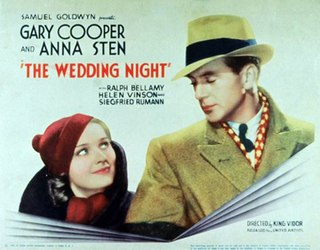
Going My Way is a 1944 American musical comedy drama film directed by Leo McCarey and starring Bing Crosby and Barry Fitzgerald. Written by Frank Butler and Frank Cavett based on a story by McCarey, the film is about a new young priest taking over a parish from an established old veteran. Crosby sings five songs with other songs performed onscreen by Metropolitan Opera's star mezzo-soprano Risë Stevens and the Robert Mitchell Boys Choir. Going My Way was followed the next year by a sequel, The Bells of St. Mary's.

Gary Cooper was an American actor known for his strong, quiet screen persona and understated acting style. He won the Academy Award for Best Actor twice and had a further three nominations, as well as an Academy Honorary Award in 1961 for his career achievements. He was one of the top-10 film personalities for 23 consecutive years and one of the top money-making stars for 18 years. The American Film Institute (AFI) ranked Cooper at number 11 on its list of the 25 greatest male stars of classic Hollywood cinema.

Red River is a 1948 American Western film, directed and produced by Howard Hawks and starring John Wayne and Montgomery Clift. It gives a fictional account of the first cattle drive from Texas to Kansas along the Chisholm Trail. The dramatic tension stems from a growing feud over the management of the drive between the Texas rancher who initiated it (Wayne) and his adopted adult son (Clift).

Eldred Gregory Peck was an American actor and one of the most popular film stars from the 1940s to the 1970s. In 1999, the American Film Institute named Peck the 12th-greatest male star of Classic Hollywood Cinema.

Kings Row is a 1942 film starring Ann Sheridan, Robert Cummings, Ronald Reagan and Betty Field that tells a story of young people growing up in a small American town at the turn of the twentieth century. The picture was directed by Sam Wood. The film was adapted by Casey Robinson from a best-selling 1940 novel of the same name by Henry Bellamann. The musical score was composed by Erich Wolfgang Korngold, and the cinematographer was James Wong Howe. The supporting cast features Charles Coburn, Claude Rains, Judith Anderson and Maria Ouspenskaya.

The Pride of the Yankees is a 1942 American sports drama film produced by Samuel Goldwyn, directed by Sam Wood, and starring Gary Cooper, Teresa Wright, and Walter Brennan. It is a tribute to the legendary New York Yankees first baseman Lou Gehrig, who died a year before its release, at age 37, from amyotrophic lateral sclerosis, which later became known to the lay public as "Lou Gehrig's disease".

The Bells of St. Mary's (1945) is an American musical comedy-drama film, produced and directed by Leo McCarey and starring Bing Crosby and Ingrid Bergman. Written by Dudley Nichols and based on a story by McCarey, the film is about a priest and a nun who, despite their good-natured rivalry, try to save their school from being shut down. The character Father O'Malley had been previously portrayed by Crosby in the 1944 film Going My Way, for which he won the Academy Award for Best Actor. The film was produced by Leo McCarey's production company, Rainbow Productions.

An Affair to Remember is a 1957 American romance film directed by Leo McCarey and starring Cary Grant and Deborah Kerr. Filmed in CinemaScope, it was distributed by 20th Century Fox. It is considered among the most romantic films of all time according to the American Film Institute. The film was a remake of McCarey's 1939 film Love Affair, starring Irene Dunne and Charles Boyer.

Beyond the Valley of the Dolls is a 1970 American satirical musical melodrama film starring Dolly Read, Cynthia Myers, Marcia McBroom, Phyllis Davis, John LaZar, Michael Blodgett, and David Gurian. The film was directed by Russ Meyer and screenwritten by Roger Ebert from a story by Ebert and Meyer.

Task Force is a 1949 American war film filmed in black-and-white with some Technicolor sequences about the development of U.S. aircraft carriers from USS Langley (CV-1) to USS Franklin (CV-13). Although Robert Montgomery was originally considered for the leading role, the film stars Gary Cooper, Jane Wyatt, Walter Brennan, Wayne Morris, Julie London and Jack Holt. Task Force was the only film Gary Cooper and Jane Wyatt made together, and was the last of the eight films Cooper and Walter Brennan made together. The U.S. Navy provided complete support in not only lending naval vessels and facilities, but also allowed the use of archival footage of the development of naval air power.

Make Way for Tomorrow is a 1937 American drama film directed by Leo McCarey. The plot concerns an elderly couple who are forced to separate when they lose their house and none of their five children will take both parents.

The Strawberry Blonde is a 1941 American romantic comedy film directed by Raoul Walsh, starring James Cagney and Olivia de Havilland, and featuring Rita Hayworth, Alan Hale, Jack Carson, and George Tobias. Set in New York City around 1900, it features songs of that era such as "The Band Played On", "Bill Bailey", "Meet Me in St. Louis, Louie", "Wait Till The Sun Shines Nellie", and "Love Me and the World Is Mine". It was nominated for an Academy Award in 1941 for Best Scoring of a Musical Picture. The title is most often listed beginning with the word The, but the film's posters and promotional materials called it simply Strawberry Blonde.

Unconquered is a 1947 American historical epic adventure film produced and directed by Cecil B. DeMille and starring Gary Cooper and Paulette Goddard. The supporting cast features Boris Karloff, Cecil Kellaway, Ward Bond, Howard da Silva, Katherine DeMille, C. Aubrey Smith and Mike Mazurki. Released by Paramount Pictures, the film depicts the violent struggles between American colonists and Native Americans on the western frontier in the mid-18th century during the 1763 Pontiac's Rebellion, primarily around Fort Pitt. The film is characterized by DeMille's lavish style, including colourful costumes and sets, thousands of extras, violence, and sensationalism.

The Story of Dr. Wassell is a 1944 American World War II film set in the Dutch East Indies, directed by Cecil B. DeMille, and starring Gary Cooper, Laraine Day, Signe Hasso and Dennis O'Keefe. The film was based on a book of the same name by novelist and screenwriter James Hilton.

The Intruder, also known as I Hate Your Guts, Shame and The Stranger, is a 1962 American drama film directed and co-produced by Roger Corman and starring William Shatner. The story, adapted by Charles Beaumont from his own 1959 novel of the same name, depicts the machinations of a racist named Adam Cramer, who arrives in the fictitious small Southern town of Caxton in order to incite white townspeople to racial violence against black townspeople and court-ordered school integration.

Along Came Jones is a 1945 American Western comedy film directed by Stuart Heisler and starring Gary Cooper, Loretta Young, William Demarest, and Dan Duryea. The film was adapted by Nunnally Johnson from the 1944 novel Useless Cowboy by Alan Le May. It was the only feature film produced by Cooper during his long film career.

June Bride is a 1948 American comedy film directed by Bretaigne Windust. The screenplay, which was based on the unproduced play Feature for June by Eileen Tighe and Graeme Lorimer, was nominated for the Writers Guild of America Award for Best Written American Comedy. The film starred Bette Davis and Robert Montgomery. The Warner Bros. release marked the screen debut of Debbie Reynolds, although her appearance was uncredited.

George Washington Slept Here is a 1942 comedy film starring Jack Benny, Ann Sheridan, Charles Coburn, Percy Kilbride, and Hattie McDaniel. It was based on the 1940 play of the same name by Moss Hart and George S. Kaufman, adapted by Everett Freeman, and was directed by William Keighley.

The Wedding Night is a 1935 American romantic drama film directed by King Vidor and starring Gary Cooper and Anna Sten. Written by Edith Fitzgerald and based on a story by Edwin H. Knopf, the film is about a financially strapped novelist who returns to his country home in Connecticut looking for inspiration for his next novel and becomes involved with a beautiful young Polish woman and her family. The film was produced by Samuel Goldwyn and filmed at Samuel Goldwyn Studios from early November to early December 1934. It was released in the United States on March 8, 1935.



















